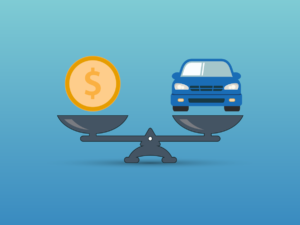What You Should Know Before Refinancing Your Auto Loan
When can you refinance your auto loan? The short answer is whenever you want. But there are more factors at play than just timing. You must be sure the numbers work out in your favor, and you must approach a refinance with every advantage available to you.
Getting a Good Deal
If you financed the purchase of your vehicle and you don’t feel you got the interest rate you deserve or the terms you need, refinancing could be a good move. Technically, you can try for a better loan any time you want — even before you’ve made a single payment!
Keep in mind, however, that obtaining the auto loan you already have — and the hard inquiries generated by that process — probably caused your credit score to take a temporary dip. If you are immediately tempted to shop for a refinance, check your credit first. It might be worth waiting a few months to let your score recover.
Another factor to consider is the amount you owe compared to the value of your vehicle. While there is no hard-and-fast rule about how or when banks and finance companies refinance loans, they are much less likely to put up the money to buy out your original loan if your vehicle isn’t worth at least as much as they are paying for it.
If you do find a finance source willing to refinance you at this stage, they are doing so at considerable risk. That risk can affect your new interest rate, so it is wise to wait until your negative equity has been paid off.
Your Payment History
If you are looking to refinance an auto loan for a vehicle you bought more than a year ago, your credit score is not the only factor at play. You will have to back up your score with a solid payment history.
When your new finance source pulls your credit report and sees that you’ve made every single payment on time, every time, for a good chunk of time, they are going to view you as less of a risk, and will be more willing to work with you on terms and rates.
Rule of Thumb of When to Refinance a Car Loan
The bottom line is that, while there is nothing to stop you from trying to refinance at any time, it is generally better to wait at least a short period of time.
At IFS, we use the following rules of thumb to guide customers on when to refinance their auto loans:
- Wait at least 60-90 days from getting your original loan to refinance. It typically takes this long for the title on your vehicle to transfer properly, a process that will need to be completed before any lender will consider your application. Refinancing this early typically only works out for those with great credit.
- Consider refinancing after six months. If you have fair to great credit, you will begin to have refinancing options after this length of time.
- If you are a first-time car loan borrower, wait at least a year to refinance your loan. A first-time borrower typically needs to build up a good car loan payment history before refinancing.
Before you jump in, it might be a good idea to think about what you hope to get out of refinancing. We did a full write-up detailing three reasons you might want to refinance. Additionally, read our guide covering what refinancing might do for you.







